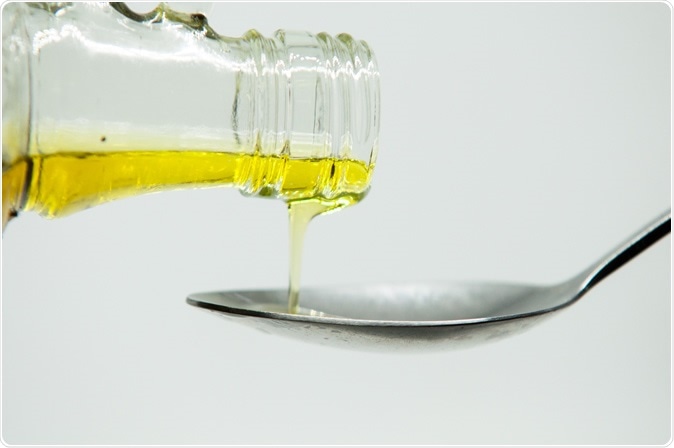Extra virgin oil is part of the much purported Mediterranean diet that is known to be good for the brain as well as the heart. The Mediterranean diet is also known to reduce the risk of dementia development.

Extra Virgin Olive - Image Credit: Lempoyang Photo Art / Shutterstock
A new study by a research team at the Lewis Katz School of Medicine at Temple University (LKSOM) has linked extra-virgin olive oil to a reduction of risk for Alzheimer’s disease. This oil has been shown to prevent cognitive decline. Their study was published in Annals of Clinical and Translational Neurology, where the researchers have shown that consuming extra-virgin olive oil protects memory and preserves the ability to learn. It also stops the formation of the amyloid-beta plaques and neurofibrillary tangles within the brain. These two are the classic hallmarks or Alzheimer's disease.
Domenico Praticò, MD, Professor in the Departments of Pharmacology and Microbiology and the Center for Translational Medicine at LKSOM, a senior investigator of this team of researchers explained that underlying mechanisms by which this oil could help was also identified.
For the study the researchers took a mouse model of Alzheimer's disease known as the a triple transgenic model. These mice develop three key characteristics of the disease;
- memory impairment
- amyloid plagues
- neurofibrillary tangles
The mice were divided into two groups, where one group received a chow diet rich in extra-virgin olive oil and the other group received chow diet without the oil. The oil was started when the animals were six months old before the actual symptoms of Alzheimer's disease begin to emerge in a usual mouse model.
It was noted that at the age of 9 and 12 months, mice on the extra virgin olive oil rich diets did better at the tests that looked at their working memory, spatial memory, and tested their learning abilities.
At end of the study the mice were sacrificed. The brains were significantly different say researchers. The brains of the mice on the oil showed “synaptic integrity” said Praticò. Synapses he explained, are connections between the nerve cells of the brain. This integrity was lacking in those without the olive oil diet. A process called autophagy too was higher among the mice on the olive oil diet.
Praticò explained that there is a process called autophagy by which the cells break down and clean the toxins and the resultant debris including the amyloid plaques and the tau tangles that are characteristic of Alzheimer’s disease. In their experiment when the mice were fed extra virgin olive oil rich diets, the levels of autophagy rose he explained. This reduces the levels of amyloid plaques and phosphorylated tau significantly. Phosphorylated tau leads to formation of neurofibrillary tangles and this leads to nerve cell dysfunction and memory symptoms related to Alzheimer’s disease. Reducing phosphorylated tau could thus be protective.
Dr. Praticò said that the benefits of Mediterranean diet has been studied previously in details but this is the first time that it was found that rather than the fruits and vegetables component of that diet, it the olive oil that is benefitting the brain health more. It is a monounsaturated vegetable fat and is better than saturated animal fats.
As a next step to their study, the team plans to introduce the extra virgin olive oil at the age of 12 months in the mice. This is the age when the mice have already developed that characteristic brain markers of Alzheimer’s disease including plaques and tangles. This is parallel to a person who has begun to show the features of dementia at the onset of the disease. Dr. Praticò explained that they would like to investigate if diet change after the onset of the disease could stop, reverse or slow its progress.